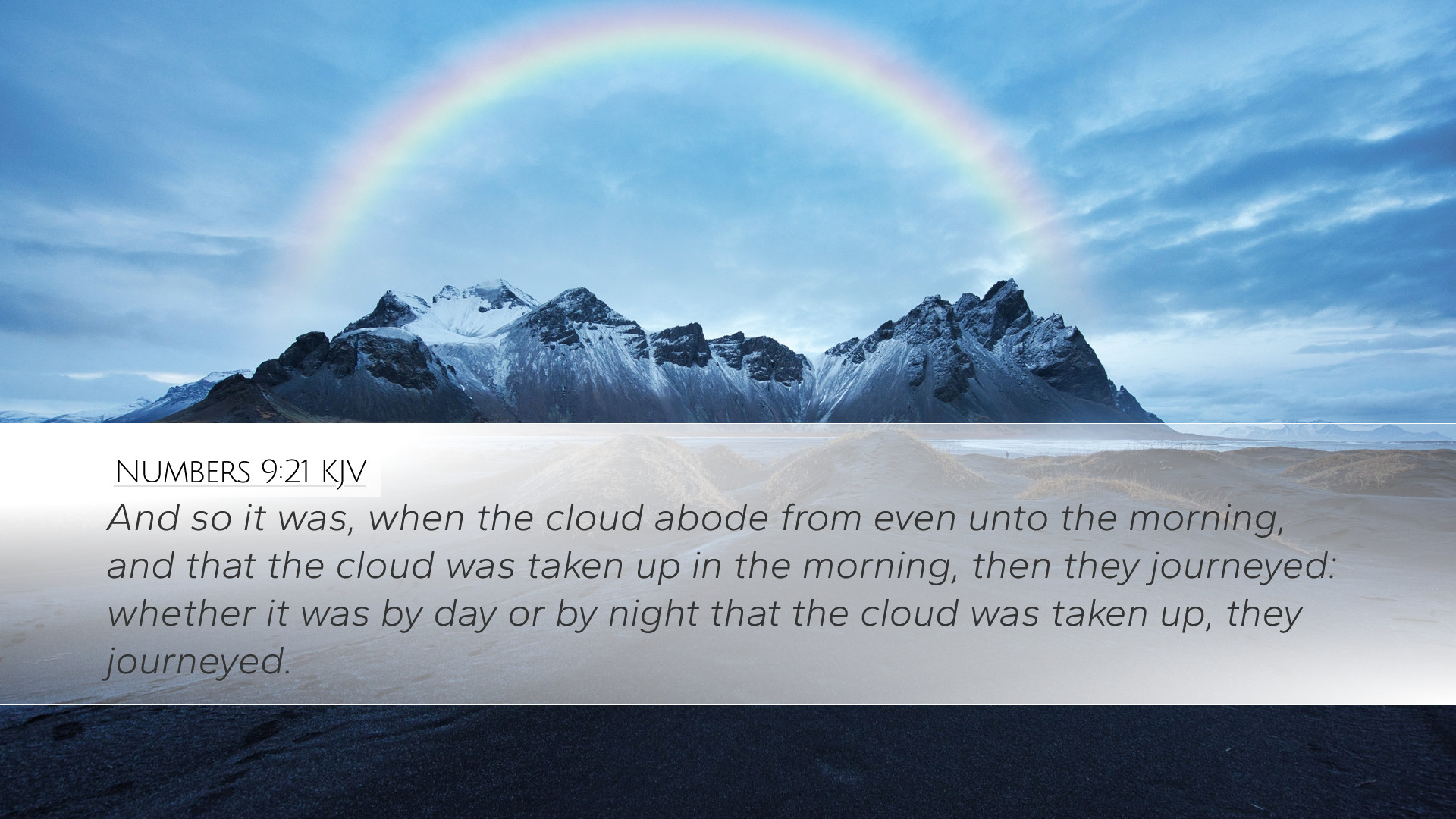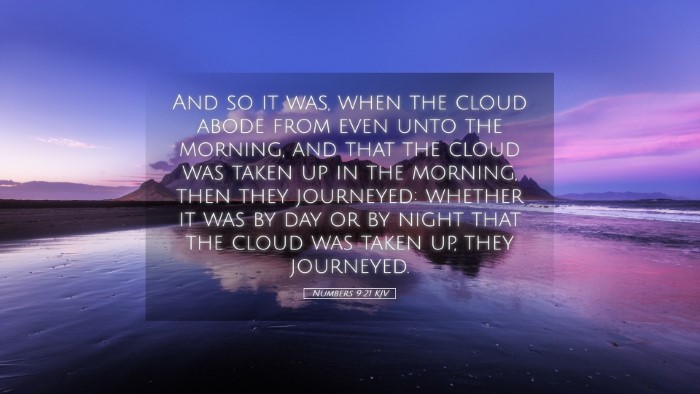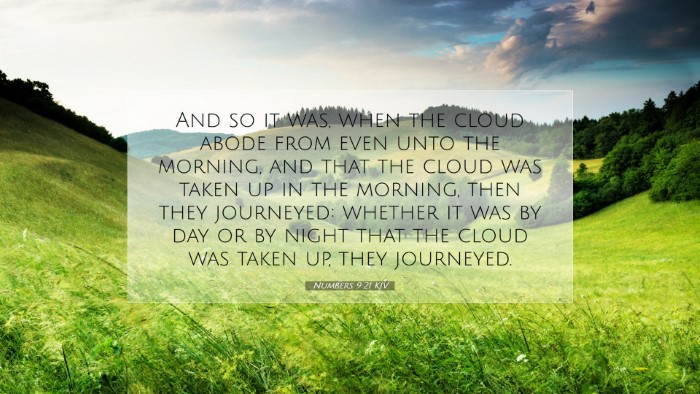Commentary on Numbers 9:21
Numbers 9:21 states, "And so it was, when the cloud was a few days upon the tabernacle; according to the commandment of the Lord they abode in their tents, and according to the commandment of the Lord they journeyed."
This verse captures a significant aspect of the Israelites' journey through the wilderness, highlighting the divine guidance and presence of God represented by the cloud.
Context and Significance
The narrative in Numbers 9 follows the events related to the Passover and emphasizes the importance of the tabernacle as the center of worship and God's dwelling among His people. The cloud by day and fire by night symbolized the Lord's guidance and protection throughout their journey.
Insights from Matthew Henry
Matthew Henry reflects on the significance of obedience to God's commands as emphasized in this verse. He states:
- Obedience to Divine Instruction: Henry highlights that the Israelites’ adherence to the commandments of the Lord showcases their faith and trust in God's direction, suggesting that true followers of God must be attentive to His leading.
- The Cloud as a Symbol: The cloud represents both comfort and direction; it is a clear sign of God’s presence, instructing the people when to move and when to remain still. This encourages believers to seek divine guidance in their daily lives.
- Patience and Trust: The mention of a "few days" indicates that there may be times of waiting. Henry emphasizes that the people had to exhibit patience, trusting in God's timing and plan.
Insights from Albert Barnes
Albert Barnes provides further discussion on the practical implications of the cloud's movement:
- Nature of Divine Guidance: Barnes elaborates on how God's guidance is often not immediate but requires discernment. The Israelites waited for the cloud’s specific movements, a lesson for believers to remain vigilant and await God’s clear direction.
- Collective Experience: He notes that the entire camp was affected by the cloud’s movements, illustrating the community aspect of faith. The journey of faith involves the entire body of believers moving together under God's lordship.
- Reliance on God’s Timing: Barnes also emphasizes the necessity of relying on divine timing. The cloud could dwell for days, even longer, and this exemplifies that God’s timing might differ from human expectation.
Insights from Adam Clarke
Adam Clarke adds depth to the understanding of the people’s experiences and responses:
- Symbolism of the Cloud: Clarke discusses how the cloud serves as a metaphor for God's presence in various life situations, adding that it represents a visible assurance that God is in control of the circumstances.
- Spiritual Lessons: He points out that the experiences of the Israelites can serve as a model for believers today regarding spiritual guidance, suggesting that just as they relied on the cloud, Christians should depend on the Holy Spirit.
- Divine Governance: Clarke acknowledges that the movements of the cloud indicate God's sovereignty over Israel’s journey, which can be paralleled to God’s providential care over the church today.
Theological Reflections
This verse invites deeper theological reflection regarding the covenant relationship between God and His people. As the Israelites sought to follow the cloud, they exemplified obedience, trust, and reliance on God's faithful provision. For pastors, students, and theologians, it raises pertinent questions about how contemporary believers discern and follow God's direction in their own migratory journeys of faith.
Practical Applications
- Listening for God's Guidance: Individuals today are encouraged to cultivate a sensitivity to God’s leading in their lives, akin to the Israelites who awaited the cloud.
- Community in Faith: Just as the movements of the cloud united the Israelites, modern Christians are reminded of the importance of community in seeking and obeying God’s will.
- Embracing the Waiting Period: As worshippers initiate periods of waiting, they are reminded of the value in stillness and trust, recognizing that God’s timing is key to His plans.
Conclusion
Numbers 9:21 serves as a powerful reminder of the necessity of obedience to God's commands and the beauty of divine guidance in times of uncertainty. Through the insights gleaned from Matthew Henry, Albert Barnes, and Adam Clarke, this commentary underscores the rich biblical truth that God remains ever-present and active in the lives of His people, now and always. Believers are thus encouraged to seek God's presence earnestly and to be responsive to His direction in all facets of life.


